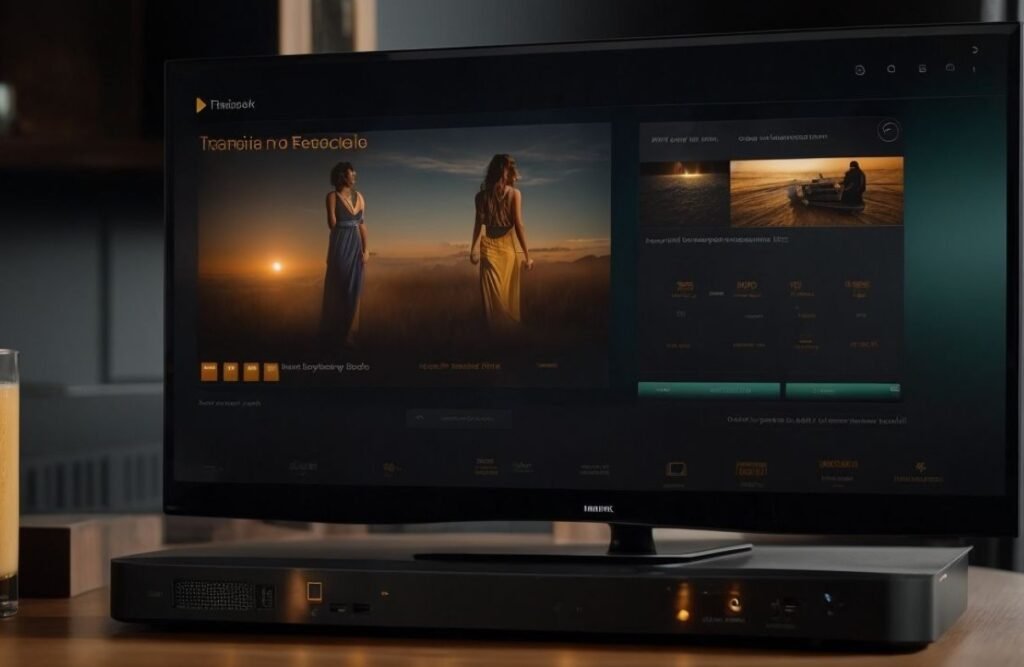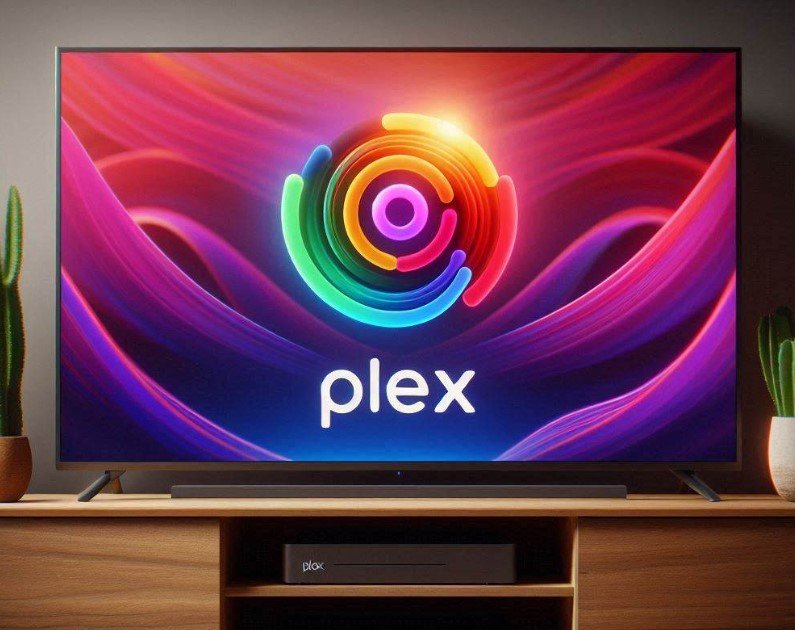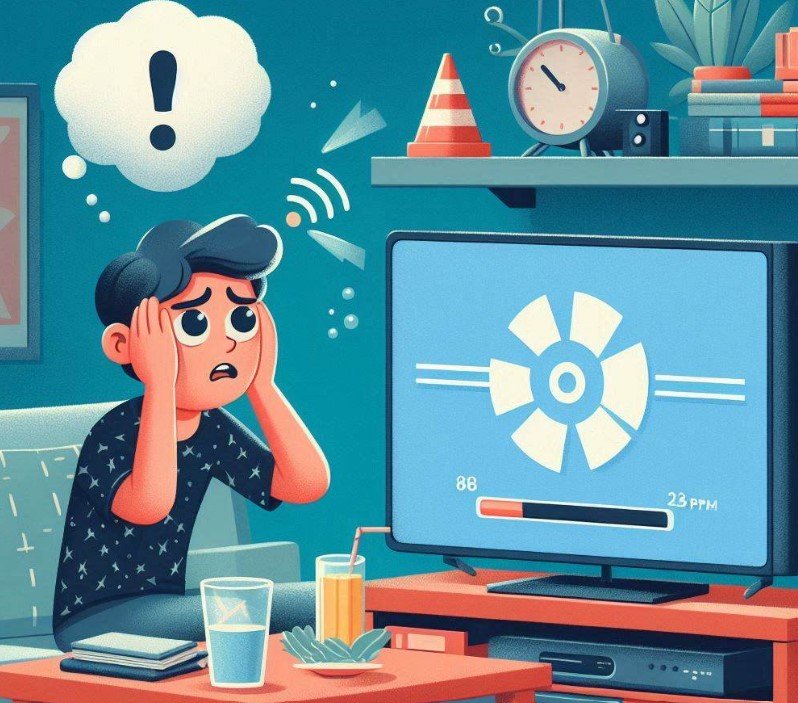In this article, we will explain why Plex Opens Slow On My TV and some reasons such as a bad network connection or poor software compatibility. And also gives ideas so you can fix this. Plex is a streaming service that lets users manage and stream their media collections to almost any device (smart TVs included). But sometimes users need help such as Plex taking forever to load or skipping when they get to their TV, which can interfere with the readability. Knowing the cause and using the correct remedies will do wonders for your streaming life.
Why Plex Opens Slow On My TV? How To Fix This?
Plex is a wonderful media server that delivers all of your favorite movies, shows, and music to your fingertips. There are many reasons why Plex is so slow to open on your TV. First, network issues are a common culprit. Plex needs a steady internet connection and, a good internet connection to stream media.

How To Fix This?
The first step to resolving these problems is to get your network connection in tune. Make sure your TV has a good Wi-Fi signal or even better hook it up with an Ethernet cord for a more stable connection. A simple router reset will also eliminate any network glitches. Then, go and look for updates, for both the Plex app itself and your TV’s firmware, because a lot of problems can be fixed just by having the latest updates.
Tips For Improving Plex Server Performance
However, to enjoy seamless streaming, optimizing your Plex server’s performance is key. Some tips to make your plex experience better.
Upgrade Your Hardware
The backbone of any Plex server is its hardware. Just make sure you have a strong CPU and lots of RAM to do the transcoding. Stream a lot of HD content, you might want to invest in a real GPU to take some of the load off.
Optimize Your Network
A reliable and fast internet connection is crucial. Never stream over wi fi always use the wired Ethernet connection it cuts down on buffering and makes it a lot more stable. And hopefully one with updated firmware, and one that uses the newer standards like 802.11ac, or wi-fi 6.
Organize Your Library
Not only is the library easier to navigate but the server runs much more smoothly. Ensure that your files are correctly named and tagged. Plex uses this to quickly find and parse your media, so it cuts down on load times.
Manage Transcoding Settings
Transcoding can strain your server’s resources. If most of your devices support the same formats as your media, consider adjusting your settings to minimize transcoding. You can have your server set to direct play and it will stream the media without having to convert it and it makes a world of difference in performance.
Why Is Plex Taking So Long To Load?
Plex Music Takes A Really Long Time To Start Playing. There are a couple of major problems with Plex though, one is that it takes forever to load. It’s usually a poor internet connection because Plex requires a pretty good network to be able to stream well.

If your Plex server is bogged down with processes or is just old and outdated, that can delay loading times too. Also, old versions of Plex apps or device software, and large, unorganized media libraries that take forever to index. So, to resolve this, have a constant internet connection, better server hardware, keep the Plex app and device updated, and clear the cache. Not to mention better-organized media and fewer simultaneous streams.
How To Speed Up Plex Loading?
First of all, make sure your network connection is good and stable to help with the Plex loading time. Wired Ethernet connection, if possible, is much more reliable than Wi-Fi. Then, be sure to upgrade the Plex app as well as all of your streaming devices, because the newer versions provide better performance and fewer bugs. Organizing your media library with proper naming conventions allows Plex to index content faster while clearing the cache on both the server and client devices can free up memory. This will also help Plex load more quickly and generally stream faster.
Why Is Plex As Slow As My Internet When I Am Streaming From My Local NAS?
Streaming from your local NAS, if Plex is as slow as your internet, there could be many reasons. So, Why Is Plex Slow On My TV? If the Wi-Fi signal is weak, or if the network is congested, streaming is much slower. Transcoding files through Plex can put a load on your NAS’s CPU especially if the hardware is older/lower-end. If the media files are in the wrong format, then they have to be transcoded and that takes time to load. Another reason is improper network configuration or background processes from other devices using bandwidth. Speed it up, have a good network connection, get better NAS hardware, check file formats and some sort of bandwidth management across devices.
Anyway To Improve Library Load Times On Plex TV
The first thing to do to speed up library loads on PLEX TV is to get the media library organized, with proper naming of files so that Plex can index the content faster. Even something as simple as upgrading your server’s hardware (like using a faster CPU or adding more RAM) would greatly decrease load times, especially with larger libraries. Plex has an “Optimize Library” feature that lets the server scan and sort all of the content ahead of time so it does not take as long to load.

Additionally, disable unnecessary metadata fetching to cut down on time spent downloading extra information about your media. This could also be improved by keeping files on faster drives (e. g. SSDs) rather than HDDs. Lastly, limiting simultaneous streams on your server frees up resources, improving the overall loading speed of your library on TV.
Why Is Plex Slow To Start Playback?
Plex TV App Is Just Slow whether that is due to network issues, such as a weak wifi signal or just slow internet, or if my server is just too underpowered for the transcoding that is being done. Or old Plex software or huge unmanaged media libraries.
How To Solve This?
Keep a good network connection, direct play to avoid transcoding, update the Plex app and devices, and organize your media library so that it can find the files faster.
Why Is Plex Buffering Or Choppy?
If Plex is buffering or playing in a choppy manner, it is usually a result of a problem with:
- Network connectivity
- Lack of server resources
- Transcoding requirements
If the internet connection is weak or keeps disconnecting, usually when I’m on Wi-Fi, then it buffers a lot. Similarly, if your Plex server’s hardware (CPU, RAM) isn’t powerful enough to handle the transcoding or multiple streams, it can lead to choppy playback. Or it may be the format or bitrate of the video file itself which would require heavy transcoding and thus a slow stream.
Why Is My Video Stream Buffering On Plex TV?
There are several reasons that a video stream will buffer on Plex, including but not limited to, insufficient server processing power to transcode, slow network speeds, high bitrate content, or some problem with the media file’s format itself. Making sure your Plex server has enough CPU power, lowering the streaming quality, speeding up your network, and using direct play or streaming will all reduce buffering.

Plex Movies Always Buffering And Skipping
If your Plex movies keep buffering and skipping, it’s probably your network or not enough server power or too much transcoding. To remedy this, use wired Ethernet connections, lower the quality of the stream, and turn on hardware-accelerated transcoding. Also, make sure that your server’s CPU and RAM have enough capacity to handle multiple streams and try to convert media into formats more friendly to streaming to avoid the necessity of transcoding. These will cut down on buffering/skipping when a movie is playing.
Plex Buffering & Stuttering Issues With 4k, Xbox One
If you’re having buffering and skipping problems with 4k content on Plex over Xbox One, it’s usually due to hardware restrictions, network speed, or transcoding requirements. 5. 0 MBps Minimum speed required for HD quality; 25 MBps Minimum speed required for Ultra-HD quality). So, turn the Auto Quality setting and let Plex adjust the streaming quality according to the internet connection so it won’t buffer if it is bad.

To fix this problem ensure that your Plex server has enough CPU power to handle 4k transcoding either through upgrading your processor or simply using direct play to skip transcoding. A Wired Ethernet connection will make the network connection rock solid and blazing fast. Lowering the video quality settings in Plex might reduce the load on your server. Lastly, upgrade the Plex and Xbox One so they work together better.
Local Plex Streaming Buffering Issues
Local Plex Streaming Buffering Issues tend to have that problem for a few reasons. The first is that network connectivity is everything; even on a LAN, a weak wi-fi signal or network traffic can cause buffering. The problem with Wi-Fi is that other devices or even physical barriers can interfere with your signal. If the server doesn’t have enough hardware to support high bit rate content or many streams, then it will bog down and buffer.
Enabling the “Direct Play when possible” option will also reduce transcoding and thus better playback performance. And, of course, having your media library in some sort of organized fashion, as well as making sure that the Plex app and server are both up to date will maximize streaming and cut down on buffering as much as possible.
Does Anybody Else Always Have Issues With Plex?
Yes, I’ve been having problems with Plex, and I’m not the only one. It seems like the usual issues of buffering while streaming, long library load times, and transcoding problems arise most often, especially when dealing with high-def stuff.

It seems like it always has to do with the network connection–either the Wi-Fi signal is too weak or there’s too much traffic, but that always seems to be the reason for the interruption. However, these are all normal issues and a little troubleshooting be it playing with my network settings upgrading some hardware, or even just fiddling with Plex settings can make everything run a lot smoother.
Plex App Loads Content A Lot Faster
There are a few things that you can do to make the Plex app load content faster. To start, make sure that your server as well as your client machines are connected through wired Ethernet, to eliminate any problems with Wi-Fi. Enable Direct Play Direct Stream to minimize transcoding, transcoding takes forever to load. Also, convert media to more compatible formats like MP4. Keep your Plex database clean and well-optimized, and if possible, upgrade your server’s hardware for faster file access and streaming speeds.
How Do I Fix Plex On My TV?
To fix Plex on your TV, follow these steps:
- Restart your TV and Plex app: This can clear any temporary glitches.
- Update the Plex app: Ensure you’re running the latest version.
- Clear app cache: Then go to your TV’s settings and clear the plex cache.
- Check your network: Make sure that your server and TV are both hooked up to an Ethernet though, for optimal performance.
- Reinstall Plex: If that doesn’t work then uninstall and reinstall the Plex app on your TV.
These are the steps that usually solve the general Plex problems on smart TVs.
Conclusion
Finally, if you are experienced in Plex Opens Slow On My TV the buffering problems in the Plex application are disheartening, but at least knowing why they occur helps users know what to do to prevent them. If you apply the remedies like use of a better network connection or the use of some server settings, then your streaming life improves immensely. With a few adjustments, using Plex can transform from a frustrating experience to an enjoyable one, enabling seamless access to your favorite media.
People Also Ask
Why is Plex so glitchy?
There are many reasons Plex might be glitchy, like a bad connection, not enough server hardware, old software, and high transcoding demands.
How to optimize Plex?
Streamline Plex with a wired Ethernet connection, better server hardware, well-organized media library, transcoding settings, and Plex app and device firmware.
How much bandwidth does Plex use for 4K?
Plex recommends at least 25 Mbps for 4k streaming but more is better, especially when playing HDR content.
Why is my streaming suddenly buffering?
It could be because the internet connection is too slow, or there is too much traffic on the network, or maybe the computer’s hardware can’t accommodate it, or perhaps it’s a problem with the streaming service itself.
Why is my Plex server lagging?
The reasons for stream lag on the Plex server range from limited CPU or RAM to too many simultaneous streams, poor network connections, to insufficient storage speed.
